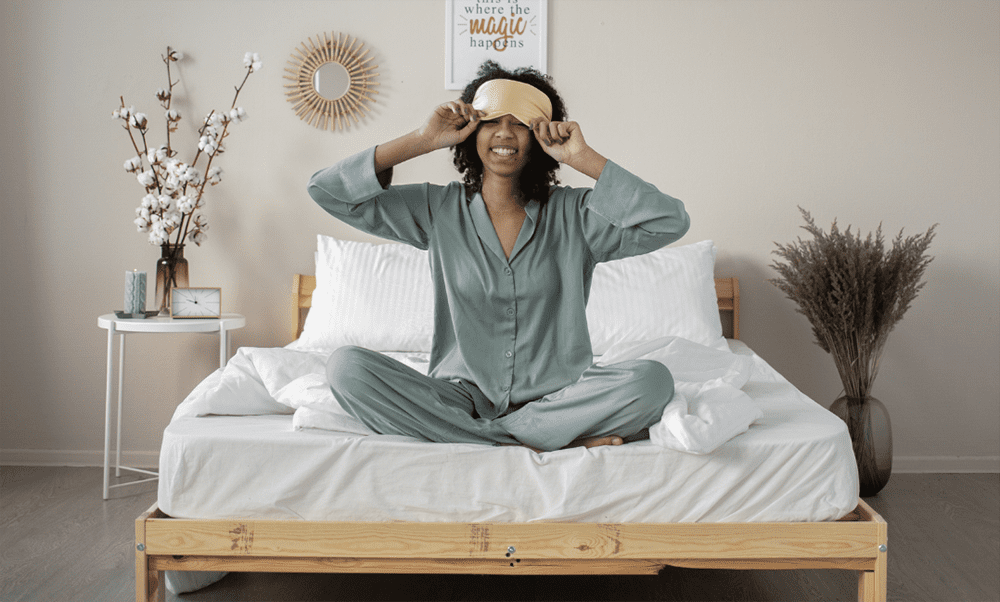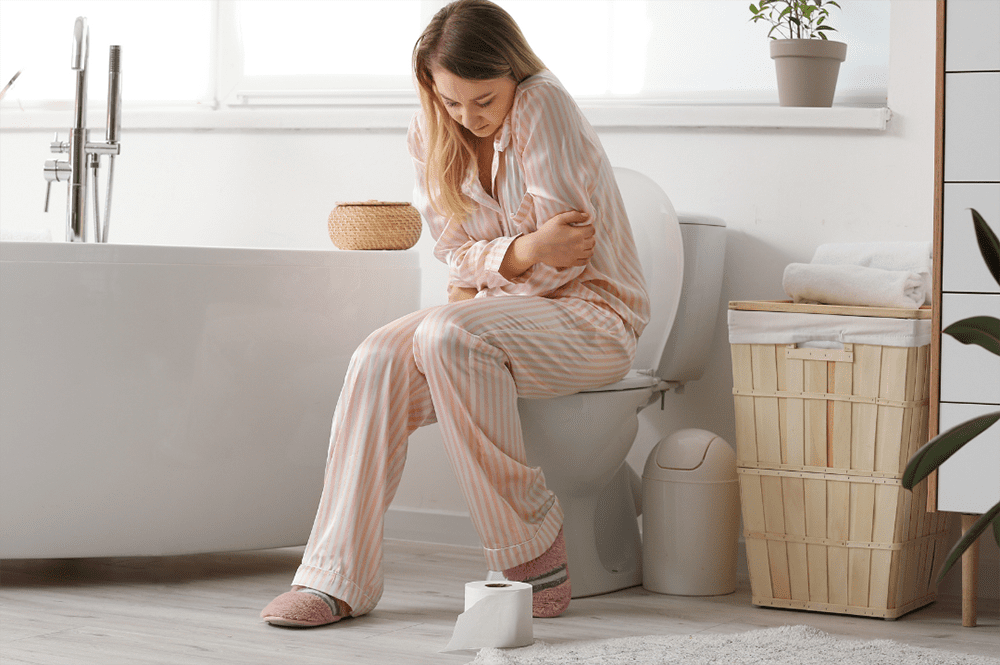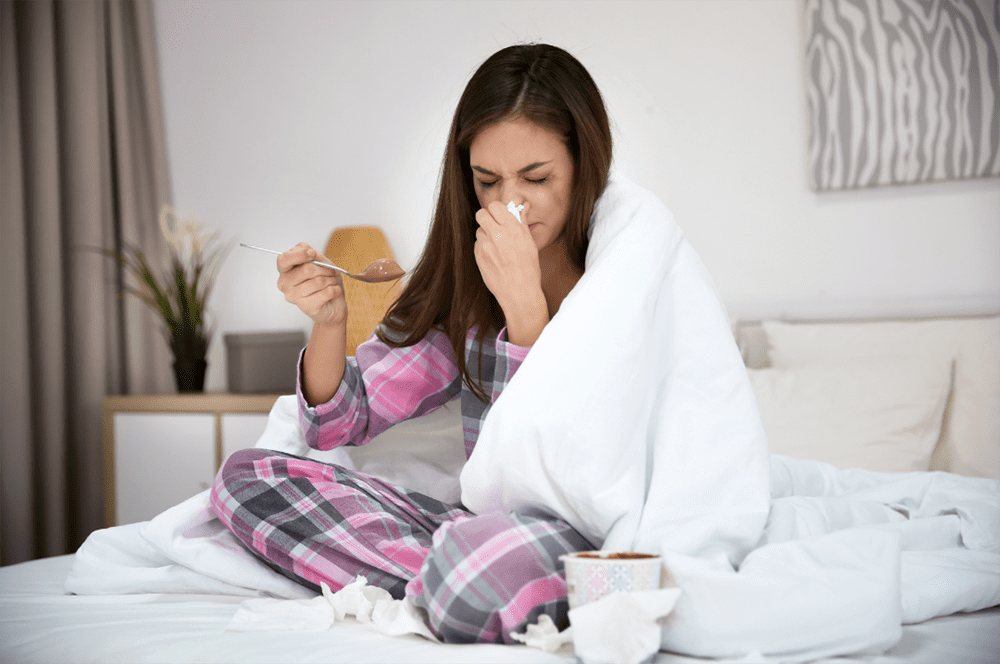As a woman, have you ever been asked the question “Is it that time of the month again”? It’s typically asked in a snarky, sarcastic manner, and usually comes from our partner, family members, or close friends. This euphemism actually refers to a woman being on her period, but it has been used to point out when a woman is thought to have PMS or premenstrual syndrome.

Twenty years ago while in medical school in Boston, my boyfriend at the time asked me that question while we were driving around town running errands. I wasn’t sure why he asked me that, but I was a bit taken aback. He subsequently stopped at Whole Foods while I waited in the car. He came right back and handed me a small brown paper bag and asked me to open it. I was pleasantly surprised at first until I pulled out a small, rectangular tin container labeled PMS supplement. Needless to say, it started a whole new argument. I couldn’t believe he spent $20 just to tell me he thought I was grumpy!
What is PMS, or Premenstrual Syndrome?
PMS is defined as a combination of physical and psychological symptoms. It occurs 1-2 weeks before a woman gets her period and is characterized by fatigue, irritability, moodiness, anxiety, headaches, bloating, and breast symptoms. It happens to 75% of women, is usually mild, and resolves a few days after the period starts. It’s related to but separate from Premenstrual Dysphoric Disorder (PMDD) which affects 3-8% of women, and is a severe form of PMS. PMDD can cause anger, irritability, and depression affecting a woman’s daily activities, and can even lead to increased suicidal ideation and attempts. Most of my discussion here will be related to mild PMS.

Why Does PMS Make You Feel So Bad?
PMS can be a very serious matter and discussing it openly is very important because it affects such a large percentage of the population. According to the medical model, the cause of PMS is thought to be due to rising and falling hormones, mainly estrogen and progesterone. This fluctuation of hormones affects the brain and influences serotonin. It is still unclear why some women are more affected by hormonal fluctuations than others. Some studies have shown that estrogen and progesterone levels are similar in women with and without these symptoms. The severity of symptoms may have to do with how sensitive a woman is to the changes in hormone levels.
I can completely relate to being sensitive to shifts in hormone levels. I recently went through a rough PMS cycle, and it wasn’t until I “got out of it” that I was inspired to write about it. During PMS my energy felt low, I was more anxious, irritable, and borderline angry at times. I felt very fatigued but pushed through it to get my work done, as that’s what I do. Mentally, I was experiencing anxiety and guilt for feeling poorly. I felt like a weak human.
An added layer of suffering from PMS is caused by not reminding ourselves it is cyclic, like everything else in life. I forget that mental and physical discomfort and pain are only temporary. I end up thinking something’s really wrong with me. I forget that it’s just PMS. Coming out of what I would best describe as a “fog” of PMS, I simply felt better. I had more energy. I felt less turmoil and irritability. What struck me was the dramatic and distinct difference in how I felt during PMS compared to how I felt right afterward.
I’ve had PMS most of my life, but something about this last experience struck a chord in me. As a high performer, I’ve always resented PMS. I’ve blamed it for slowing me down, making me weak. I wished it didn’t affect me so much. My recent experience made me wonder why I felt and behaved differently around something so natural. I questioned all of my beliefs about PMS. Is PMS really that bad if it’s slowing me down?

Why PMS is a Combination of Physical, Psychiatric, and Cultural Syndromes
When I set out to write this article, I intended to write it through the lens of an OBGYN physician experiencing these all-too-real symptoms. I intended to discuss methods to manage it medically. After more thought and research on the topic, I am choosing to offer an alternative way of viewing PMS.
During my research, I came across articles that talk about PMS as a “Cultural Syndrome.” It’s defined as a culture-specific syndrome, a combination of psychiatric and somatic symptoms considered a recognizable disease only within a specific society or culture. Different cultures have varying cultural syndromes.

An interesting example of a cultural syndrome is koro, aka magical penis theft or genital retraction syndrome, an anxiety disorder seen mostly in Southeast Asia. Koro is when a person believes his or her genitals have been stolen by magic. Is PMS like Southeast Asia’s koro disorder, except that it’s a Western culture-specific disorder? The key here is to understand that because something’s labeled socially-constructed doesn’t mean we can’t experience the symptoms. Saying PMS is socially-constructed doesn’t mean PMS is “imaginary”.
The Western medical model assumes PMS is purely biological, which is how I’ve understood it, knowing full well that not everyone experiences the symptoms in the same way. Yes, there is a clear hormonal basis for changes that occur during the menstrual cycle, giving a physiological explanation for the symptoms. Menstrual cycle disorders can exacerbate existing psychiatric illnesses. However, when examining PMS from a cultural perspective, there have been fascinating findings. Some studies have found women who endorse more traditional gender roles tend to have more PMS symptoms. PMS has gained such cultural currency that many women have come to expect PMS as an expected period of suffering.

Is Your PMS Experience a Reflection of Your Culture?
The WHO published a review article on mental health looking into a variety of conditions affecting women and mental health. They specifically looked at PMS symptoms in women from many countries and stated “symptoms suggestive of PMS are present in diverse cultural groups, but are subject to individual variation in the incidence, nature, and severity of symptoms.”
One study compared Maori and Polynesian women in New Zealand to European women for their reported symptoms and severity. The most common reported symptoms were tension, irritability, depression, fluid retention, breast tenderness, and headaches. European women reported the highest rates of symptoms (84%) and the highest incidence of severity (18%). The interesting part here is when asked how they coped with their PMS symptoms, the Maori and Polynesian women answered with more rest, eating watercress, and extended family help. European women were more inclined to read books and attend courses on premenstrual syndrome. The difference here is that the European women considered their symptoms as abnormal problems, whereas the Maori and Polynesian women were more accepting of what their bodies were trying to tell them and though they did change their routine during PMS, they didn’t seem to pathologize it.
PMS is certainly real and I can attest to that. Symptoms of PMS seem to be experienced universally in women across all ethnicities and cultures. The main difference is how symptoms are interpreted and understood. As shown in the example of the Maori and Polynesian women, PMS is viewed as a natural event. The methods these women use to manage PMS are natural remedies and allowing themselves to rest and ask others for help.
In Western cultures, PMS has been viewed through the lens of pathology as something needing to be fixed or resolved so we can push on with our day. It’s seen as unnatural, as something that shouldn’t be there. When PMS happens, instead of gifting ourselves the grace to slow down, we push ourselves harder to fight self-perceived weakness and feeling poor. We end up like me, feeling bad for just feeling bad.

How Do We Listen to What our Bodies are Trying to Tell Us?
What if we could change the way we look at PMS in Western society? What if we view PMS not as something purely biological that needs to be fixed, or as something wrong with us, but instead as a built-in monthly smart sensor reminding us to slow down and rest? When the symptoms arrive, the fatigue, irritability, anxiety, headaches, and bloating, what if we could take that as a signal that it’s time to slow down, time to rest, time to do less, and even ask for help?
I am not, by any means, against the medical model of treating PMS. It’s fine to take over-the-counter or physician-prescribed medications such as ibuprofen, birth control pills, or antidepressants to treat severe symptoms. But if we allow ourselves time and space to intentionally slow down instead of resisting what our bodies are feeling inside, it’s possible our perception and experience of the symptoms of PMS could change. What if your PMS is only reminding you to slow down and truly take care of yourself?
Dr. Christine Vo MD, is a board-certified Obstetrician/Gynecologist and Life Coach for high-achieving women. She received her medical degree at Boston University and completed her residency training in OBGYN at the University of Hawaii. She has been in OBGYN practice for over a decade. She served as a physician in the US Air Force, and now continues to practice in the civilian world. After going through a period of burnout, aside from the support of her family, coaching was a critical factor in her recovery. As an immigrant and a woman of color who grew up feeling voiceless and powerless, she is also dedicated to shattering stereotypes, and helping women find their unique voice while growing their confidence.
Are you a physician who feels unsupported and is thinking of quitting or going part-time? Or unconsciously turning to chocolate, wine or Netflix to numb out at the end of the day? We want to invite you to Burn Bright instead of Burn Out with our Physician Wellness and Empowerment Program? Join us now to alleviate the chronic stress so you have the breathing room to create a life you love and never experience burnout again.
If you are ready to say goodbye to impostor syndrome and welcome confidence and balance into your life, join our free training where we cover 3 steps to help you kick overwhelm and exhaustion to the curb and live that confident and balanced life you deserve. Click here to enroll in our free training.



